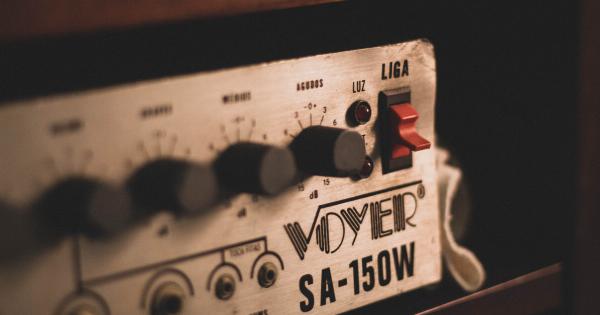Dementia is a general term used to describe a decline in memory and cognitive function that is severe enough to affect daily life. It affects millions of people worldwide, but there is no cure for it.
However, there are some non-drug therapies that have been proven to be effective in managing dementia symptoms, improving cognitive function, and enhancing the quality of life for patients. Here are some of them:.
1. Cognitive Stimulation Therapy (CST)
CST is a structured and group-based therapy that involves a range of activities and exercises designed to stimulate cognitive function and improve memory and thinking skills.
It is a non-pharmacological intervention that can be easily administered by trained healthcare professionals, and has been shown to have positive effects on cognition, mood, and quality of life in people with dementia.
2. Reminiscent Therapy (RT)
RT is a non-pharmacological intervention that encourages people with dementia to recall past events, memories, and experiences. It can involve looking at photos, listening to music, or even visiting places from their past.
RT has been shown to improve cognition, mood, and well-being in people with dementia. It is also a low-cost and easily implementable therapy.
3. Music Therapy
Music therapy involves listening to or making music as a means of improving cognitive function, mood, and quality of life in people with dementia.
It can activate certain areas of the brain, leading to increased neural connectivity and improved cognitive performance. Additionally, music has been shown to have a positive effect on mood and can decrease agitation and aggression in people with dementia.
4. Exercise programs
Physical activity can help to improve cognitive function and mood in people with dementia, in addition to providing numerous physical health benefits.
Exercise programs designed specifically for people with dementia can include aerobic exercise, resistance training, balance training, or a combination of these. They have been shown to improve several aspects of cognitive function, including attention, memory, and executive function.
5. Pet Therapy
Pet therapy involves interaction with animals, usually dogs or cats, as a means of providing comfort and social engagement for people with dementia.
It has been shown to reduce agitation and improve mood in people with dementia, as well as provide a sense of purpose and social connection. It may also facilitate the expression of emotions and increase social interaction.
6. Art Therapy
Art therapy is a creative therapy that involves the use of art materials and activities to improve cognition, mood, and quality of life in people with dementia.
It can include drawing, painting, collage, or sculpture, and can provide a means of self-expression for people who may have difficulty communicating verbally. Art therapy has been shown to improve mood, reduce agitation, and enhance social interaction in people with dementia.
7. Light Therapy
Light therapy involves the use of a specialized light box that emits bright light, usually in the morning, as a means of regulating the circadian rhythm in people with dementia.
It has been shown to improve sleep quality, mood, and agitation in people with dementia, as well as reduce symptoms of depression and anxiety. It can also improve cognitive function, particularly in the areas of attention and executive function.
8. Reality Orientation Therapy
Reality orientation therapy is a technique that involves providing people with dementia with cues and reminders of their time, place, and personal information, in order to help them maintain a sense of reality and reduce confusion.
It can include the use of calendars, clocks, and photos, and can be provided by trained healthcare professionals or family members. Reality orientation therapy has been shown to improve cognitive function, reduce anxiety, and enhance social interactions in people with dementia.
9. Validation Therapy
Validation therapy is a technique that involves acknowledging and accepting the emotions and feelings expressed by people with dementia, rather than trying to correct or deny them.
It is a person-centered approach that focuses on empathizing with the person’s emotions and validating their experiences, rather than trying to change their behavior. Validation therapy has been shown to improve mood and reduce agitation in people with dementia.
10. Aromatherapy
Aromatherapy involves the use of essential oils, usually inhaled or applied topically, as a means of providing relaxation, reducing agitation, and improving mood in people with dementia.
Lavender, lemon balm, and chamomile are some of the most commonly used oils in aromatherapy for dementia. Aromatherapy has been shown to have a positive effect on mood and reduce the use of psychotropic medication in people with dementia.
Conclusion
Non-drug therapies can provide significant benefits for people with dementia, improving cognitive function, mood, and quality of life. These therapies are cost-effective, low-risk, and can be easily implemented in various settings.
Healthcare professionals and family members should consider incorporating non-drug therapies into the care plan for people with dementia, in order to optimize their well-being and quality of life.


























